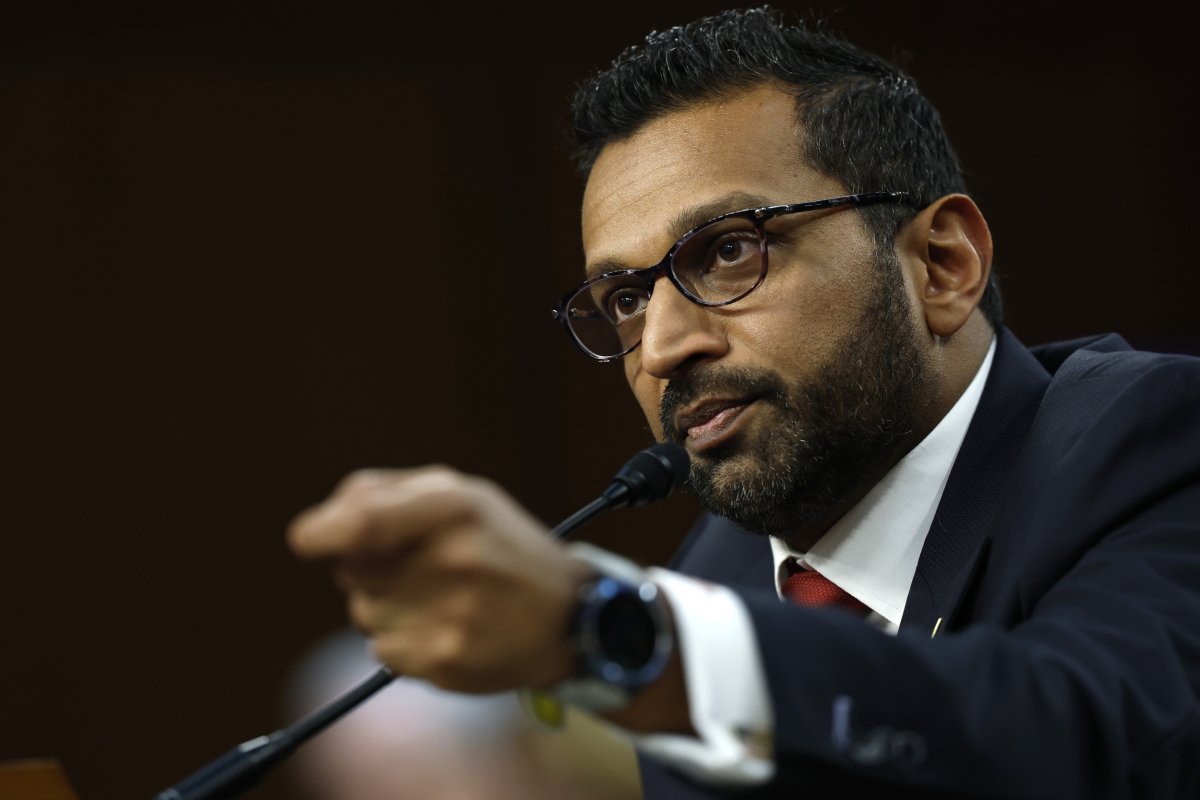Breaking: Murkowski & Collins' Vote Against Patel Explained
In a political landscape often defined by staunch party lines, could two Republican senators truly buck the trend and cast dissenting votes on a pivotal nomination? The answer, as it unfolded on a consequential Thursday, revealed a surprising instance of intra-party disagreement, setting the stage for a close confirmation vote that would reverberate through the corridors of power.
The Senate chamber, on a day that would later be marked in the annals of political history, witnessed a vote of considerable import. At the heart of the matter was the confirmation of Kash Patel, the individual chosen to lead the Federal Bureau of Investigation, a role that demands both experience and a steady hand at the helm of the nation's foremost law enforcement agency. The outcome of the vote, however, was far from certain, with the Senate divided along partisan lines, and the weight of individual conscience bearing heavily on those in the crosshairs.
The final tally, when announced, underscored the deep fissures within the political establishment. Kash Patel was confirmed by a narrow margin of 51 to 49 votes. While this signaled a victory for the nominee, the narrative that emerged was far more complex than a simple win or loss. The fact that two Republican senators chose to vote against Patel, defying the expectations of their party and raising questions about the future, added another layer of intrigue to the story.
The dissenting voices, emanating from the states of Alaska and Maine, were those of Senators Lisa Murkowski and Susan Collins, respectively. Their decision to break ranks was not taken lightly, nor was it made without significant deliberation. Concerns were voiced about Patel's "political activities" and the potential impact on his leadership, suggesting that the two senators had carefully weighed the implications of their vote before casting their ballots.
The confirmation process, however, was not without its controversies. Democrats vehemently opposed Patel, arguing that he would use his position to target the president's perceived enemies, a fear that fueled the already heated atmosphere. Senate Judiciary Committee Chair Chuck Grassley acknowledged that Patel lacked prior law enforcement experience, a detail that further fueled the arguments against his confirmation.
Senator Susan Collins, in her statement, cited Patel's "high profile and aggressive" nature as a significant factor in her decision. This reflected the broader concerns about Patel's suitability to lead the FBI. The fact that both Murkowski and Collins had also voted against another of President Donald Trump's cabinet picks further emphasized the significance of their dissent.
In a dramatic turn, on a Thursday that promised to be long and arduous, two senators stood firm in their opposition. Lisa Murkowski of Alaska and Susan Collins of Maine, were the only Republicans to break ranks, voting against Kash Patel's confirmation. Their votes, along with those of the entire Democratic caucus, underscored the deep divide within the Senate and amplified the implications of the vote.
This marked an extraordinary political moment, with senators taking their stand on an issue of national importance. Every Democrat lined up to vote against Patel, and their united front highlighted the depth of their opposition. Senator Susan Collins of Maine was the only Republican to oppose Patel's confirmation. Her vote, along with that of Senator Lisa Murkowski, raised questions about the direction of the Republican party and their response to the Trump administration.
Before Thursdays final vote, Senator Collins, who also voted against defense secretary Pete Hegseth, said she would vote no on confirming Patel, citing his high profile and aggressive nature. The announcement came shortly after she voted against three of President Donald Trump's cabinet picks, making her the only Republican to do so in both cases.
The senators who stood against Patel each referenced actions by the Trump administration to identify FBI agents who worked on cases related to the Jan. 20 incident. Their votes were significant, coming at a time of great political division. Every Democrat voted against the confirmation. And no, the two Republicans did not include...
The final vote, which took place later on Thursday, confirmed Patel with a narrow margin of 51 to 49 votes, with all Democrats voting against him. The vote was a signal of the state of the nation's politics, with dissent in the Republican party marking a significant moment.
| Category | Details |
|---|---|
| Name | Kash Patel |
| Birth Date | Not available |
| Education | University of Richmond School of Law, LL.M. |
| Career Highlights |
|
| Notable Actions/Positions |
|
| Political Affiliation | Republican |
| Controversies | Questions raised about potential misuse of the FBI for political purposes, concerns over lack of law enforcement experience by Democrats, and the actions of the Trump administration were cited in objections to the nomination. |
For more detailed information, you can refer to: Kash Patel - Wikipedia



